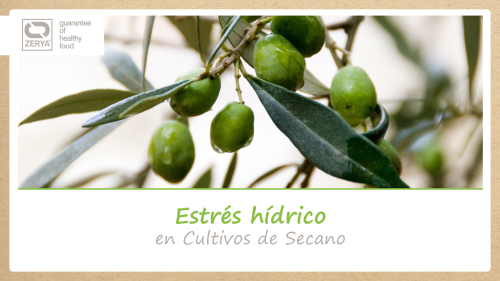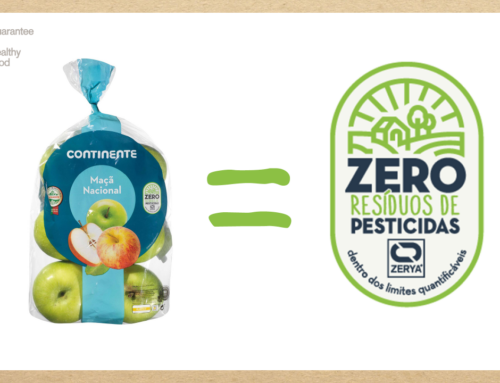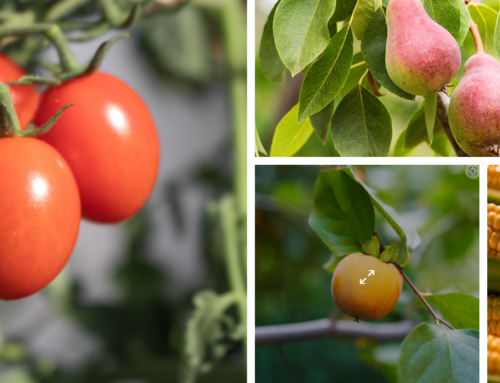
Let’s talk about the areas where the climate is a determining factor for production. In the case of Andalusia and Extremadura, dry farming depends largely on rainfall, which is scarce and irregular. This creates great uncertainty for producers, who do not know if they will be able to harvest sufficient quantity and quality of their products, such as olives or wheat.
Mitigating the effects of climate change and drought
To address this situation, we are sharing with you the best practices that we are developing in a research project that combines four techniques: the use of foliar fertilizers, the introduction of new seed varieties, soil management and controlled deficit irrigation. These techniques seek to improve the productivity and profitability of dryland crops, reducing water consumption and optimizing the use of nutrients. In addition, they also contribute to mitigating the effects of climate change, which is expected to increase drought and temperature in the region.
The ultimate goal of our research is to modernize the agricultural sector in Andalusia and Extremadura, offering training and advice to producers on how to apply these techniques on their farms. In this way, we hope to increase the competitiveness and sustainability of dryland farming, which is a fundamental economic activity for many rural areas.
Equilibrium theory: Improving the quality and stability of production
The aim is to improve the quality and stability of green olive production, using new analytical and plant nutrition techniques.
One of the techniques used is the theory of equilibrium, which consists of introducing the nutrients that the plant needs according to the analysis of the soil and plant tissue via the leaves. In this way, we reduce the thermal stress and water stress that olive trees suffer in the hottest months, and we achieve a very significant improvement in terms of the quality of the olive.
Injection of organic matter into the soil
Another technique we use is the injection of organic matter into the soil, combined with microorganisms, polymers and chemical elements. This technique allows us to increase the water retention capacity of the soil, taking advantage of rainfall, and improve its physical, chemical and biological properties. In this way, we promote the root development of olive trees and their ability to absorb nutrients.
Managing alternate bearing in olive groves
With these techniques, we managed to break the famous alternate bearing of olive trees, which is the phenomenon by which olive trees produce a lot one year and little the next. This phenomenon is due to nutritional imbalances and not to a genetic aspect of the plant. By maintaining a tailored nutrition plan for the soil and the plant, we achieve more regular and profitable olive tree production.
We continue the dossier with the techniques that we recommend at ZERYA. You already know that we are specialists in agriculture without pesticide residues and we promote a healthy, sustainable and profitable agricultural culture. Since 2009, for more than 14 years, we have been certifying producers of fruit, vegetables and also olive oil, as is the case of the Cooperativa de Los Ángeles in Montellano (Seville).
As we know the reality of the field, we know what your needs are, let’s start:
How to improve water retention in soil with organic matter and polymers?
Water is an essential resource for agriculture, but it is becoming increasingly scarce and expensive. Therefore, it is important to find ways to optimize its use and make the most of the rain that falls on crops.
In an experiment we carried out in the Extremadura area, we applied a combination of organic matter and polymers to improve water retention in the soil and increase olive and cereal production.
What are organic matter and polymers?
Organic matter is any substance that comes from or has been transformed by living organisms. It can be of animal or plant origin, such as manure, compost, straw, leaves, etc.
Polymers are large molecules formed by joining many smaller units called monomers. Some polymers are natural, such as starch or cellulose, and others are synthetic, such as plastic or nylon.
Organic matter and polymers have in common that they can absorb and retain large amounts of water, which gives them hydrophilic properties. This means that they can attract and hold water close to the roots of plants, which promotes their growth and development.
How do we apply organic matter and polymers to the soil?
To carry out the trial, we chose a plot of olive groves in production with a shallow, clayey soil. The aim was to improve the soil’s water storage capacity and reduce the need for irrigation.
What we did was apply a dose of between 300 and 500 kg per hectare of a commercial product containing organic matter and polymers. The product was incorporated into the soil by injection at a depth of about 20 cm, leaving a kind of wedge on the surface.
In this way, we manage to create an area where rainwater accumulates and slowly infiltrates downwards, being retained by organic matter and polymers. Thus, when the olive tree begins to demand water, its roots can easily access it.
What results did we obtain with the application of organic matter and polymers?
The results we obtained were very positive both in agronomic and economic terms. On the one hand, we managed to increase olive production by 30% compared to the control without treatment. On the other hand, we reduced water consumption by 50%, which represents a huge saving.
Furthermore, we observed that the effect of the product was maintained throughout the crop cycle, guaranteeing water availability until October. This is because the organic matter gradually releases water according to the demand of the olive tree, and when this is depleted, the polymer comes into play, acting as an additional reserve.
We also found that the product works not only in olive groves, but also in cereals. In this case, we applied the product to wheat sowing and managed to increase yield by 20% compared to the untreated control.
What are the advantages of using organic matter and polymers in the soil?
As you have seen, using organic matter and polymers in the soil has many advantages to improve water retention and soil fertility. Among them we can highlight:
- Increases the soil’s water storage capacity and reduces evaporation.
- Improves soil structure and porosity, facilitating water infiltration and drainage.
- It provides nutrients and organic matter to the soil, improving its biological activity and chemical balance.
- Reduces soil erosion and compaction, protecting it from torrential rains and trampling.
- Increases plant resistance to water stress and diseases, improving their quality and yield.
- Reduces dependence on irrigation and fertilizer use, saving resources and money.
Do you dare to try organic matter and polymers in your soil?
To improve water retention in your soil and optimize the use of this valuable resource, we invite you to try organic matter and polymers. This is an ecological, economical and effective solution that will help you obtain better results in your crops.



